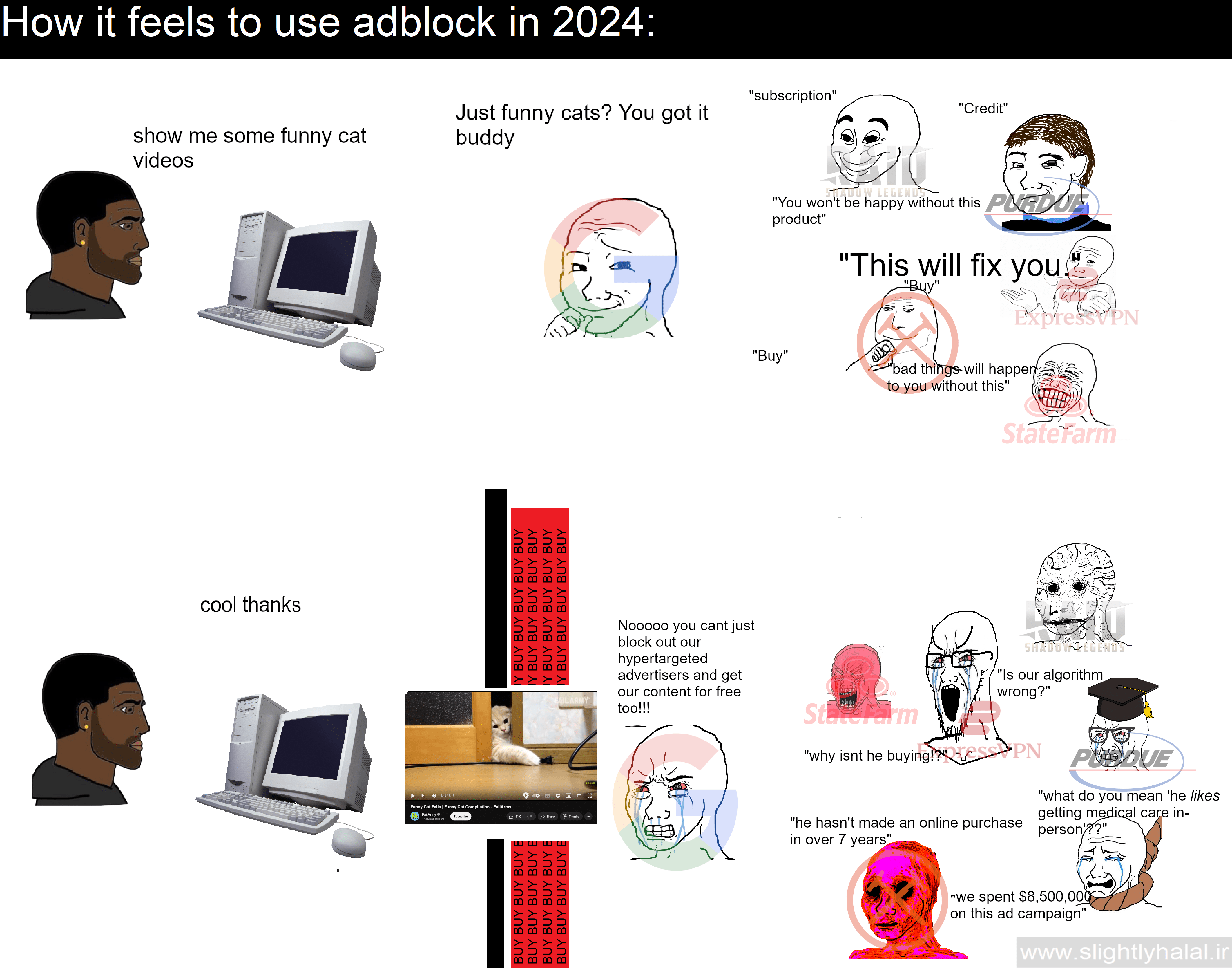this post was submitted on 08 Sep 2024
442 points (96.0% liked)
Memes
45704 readers
1156 users here now
Rules:
- Be civil and nice.
- Try not to excessively repost, as a rule of thumb, wait at least 2 months to do it if you have to.
founded 5 years ago
MODERATORS
you are viewing a single comment's thread
view the rest of the comments
view the rest of the comments

I've certainly heard this said before. Lately I've been thinking more about it as ads seem to be infecting more and more aspects of my life and so I've started to question it.
I've started to think that the whole "it makes you subconsciously think about the product when you're in the store" thing might just be made up by marketers. You know, the people whose jobs entirely depend on advertising being a good investment. That does kind of self-prove the point though, because if marketers just made it up and a bunch of people now think it's true, it follows that people will just absorb "information" if it's fed to them from the correct place.
I figured I'd see if I could find some science research on the subject. I managed to read through six studies (at least the abstracts and the methodologies) before my eyes glazed completely over and I needed to stop.
First I will say that none of them are able to draw links from advertising consumed to purchases made. The methodologies tend to focus on the immediate, how the ad makes a person feel in the moment. Generally this is done by asking people. Surveys and the like. The first one measured facial expressions and emotional responses. The PLOS one (fifth link) just asked marketing managers if their marketing was effective or not (and wow do they ever use a lot of words to say that, they turned their thesaurus up to 11). The second one is actually a bit of a side-bar in that it's specifically looking at the effectiveness of gamified advertising, but it does investigate brand memory based on different exposures. Again, just brand memory, not actual purchase behaviour.
And all that makes sense. It would be extremely difficult to build a study that manages to track every motivation for purchasing a given product, especially if some of those motivations aren't known by the purchaser. So what I'll say is that while it's likely that advertising can prod us one way or another, the wisdom that it's an effective subconscious driver of sales is not evidence based.
Do with that what you will.